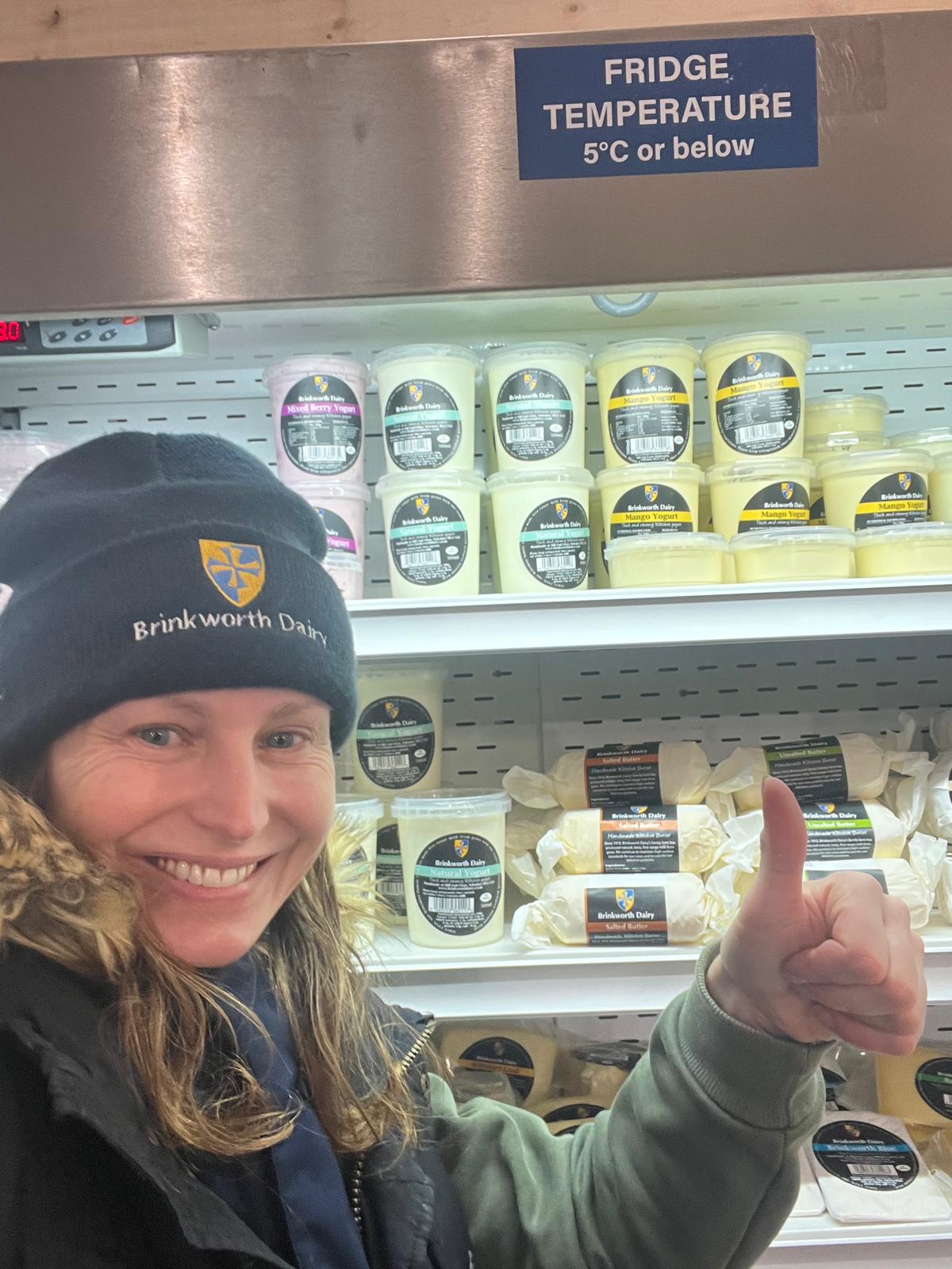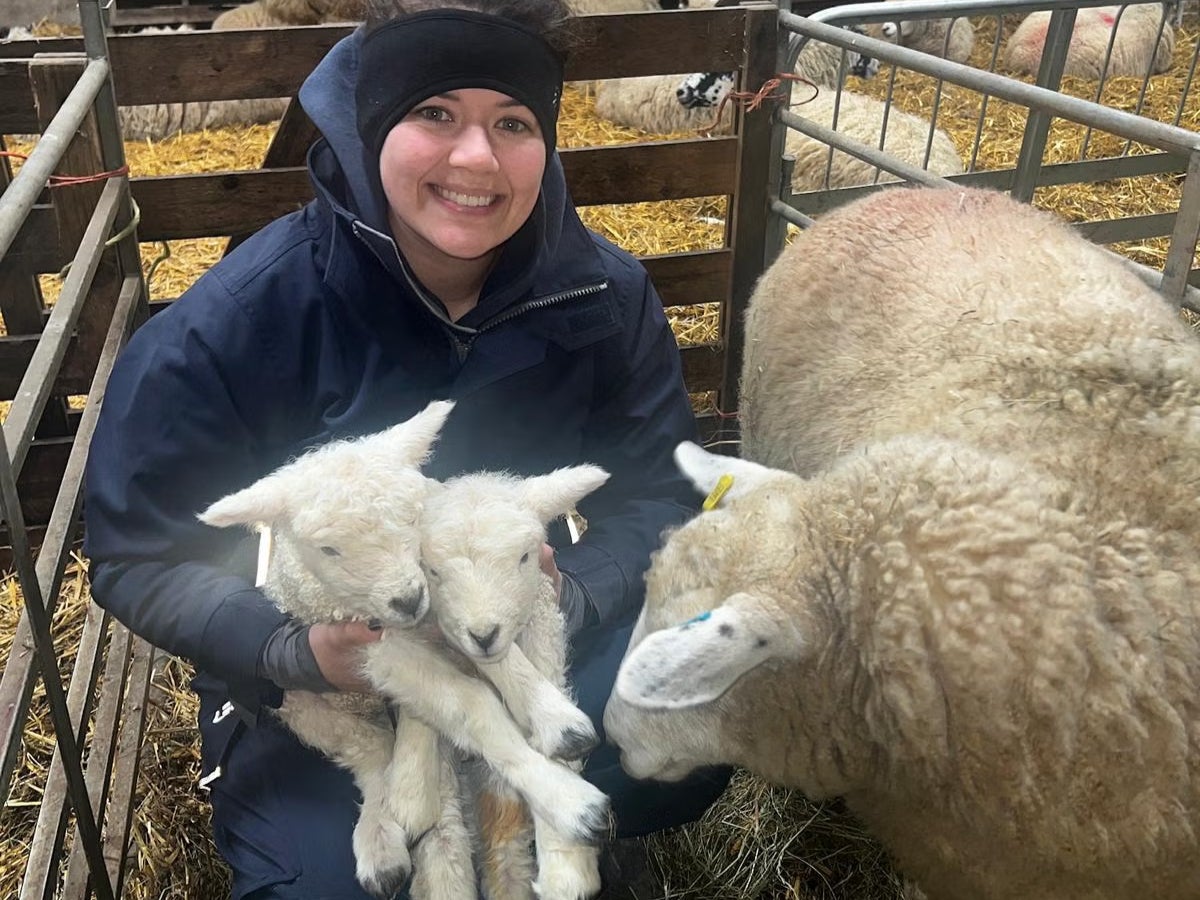A female farmer has raised fears that the number of farmers taking their own lives will rise in the wake of Labour’s inheritance tax as she warned of the devastated families left behind to pick up the pieces.
Ceri Cryer, a farmer based in north Wiltshire, told The Independent she has been overwhelmed with stress since Rachel Reeves unveiled the plan in the recent budget - adding that she has never been as depressed about the future of farming as she is now.
Her comments come as the chancellor’s plans to impose inheritance tax on farms worth more than £1m have unleashed outrage among rural communities, with an estimated 20,000 people descending on Westminster on Tuesday to call for ministers to backtrack on the “tractor tax”.
Farmers have disputed the government’s insistence that small family farms will not be affected by the policy but Ms Reeves has refused to backtrack - instead telling farmers they must fork out their share to fund public services including the NHS.

Ms Cryer, who is 45, argued that “cheap food comes at a cost for farmers' mental health” as she told of the difficulty of separating work and home life.
She added: “Immediately just from having this budget announcement, we have had a suicide already. It is tragic. I can’t imagine having to pick up the pieces of that.”
Research from the Farm Safety Foundation previously found up to 94 per cent of UK farmers under the age of 40 say mental health is one of the greatest hidden issues they grapple with on a day-to-day basis.
“It should be of huge concern to every one of us that the suicide rate among male farmers is three times the national average, and the highest among any sector in the economy,” Environment Secretary Steve Reed told parliament last month.
Office for National Statistics (ONS) data shows 36 farmers across the UK killed themselves and 22 died in accidents in 2021.
Ms Cryer, whose family have been farmers for many generations, told of a male farmer in her village who killed himself this year in a “tragic” case.
“I wouldn’t say suicide in farming is a secret, we know it is a problem,” she added. “It is long hours. There is access to powerful drugs and sometimes farmers are working on their own so have nobody to speak to. For mothers and girlfriends left behind, it is tragic and for men left behind too.”
Ms Cryer, who works with her husband and parents at Brinkworth Dairy, added: “We have the best office - which is the beautiful countryside - and the best colleagues - for example my cows - but in exchange for that we work long hours for not a lot of money.
“We are on all the time. It is really hard. Cheap food comes at a cost for farmers' mental health.”
Bizza Walters, a member of the National Farmers Union, said: “With the pressures farmers are already under - linked to the cost of living crisis, increased energy costs and prices of fertiliser and feed, and increasingly erratic weather patterns - the inheritance tax has the potential to further harm farmer’s mental health. It is another added pressure that we really don’t need.”
Ms Walters, a farmer based on a family farm in Warwickshire, said suicides in farming communities have “a huge knock-on effect” on the families left behind, as well as employees.

She added: “It could be that he or she is the farmer with the greatest expertise juggling all the plates and whether they had an accident or have tragically taken their own lives, it can leave the family left to run the farm. They might not necessarily have the knowledge.”
Ms Walters, who works for the Farmers Safety Foundation, which campaigns on mental health and safety for farmers aged between 16 to 40, warned farmers work intensely long hours and it can be isolating.
She added: “You are tired and overworked, it can be really lonely. There is pressure and a cultural expectation that still exists - but is getting better - that you should be working all hours of the day because there is so much to get through.
“Some farmers work virtually 365 days a year - it ranges from season to season but farmers can work up to 100 hours a week during busy times of year.”
She said farmers “feel broken” and are feeling “anger, betrayal, and upset” - adding that they feel uncertain about what the future holds.
If you are experiencing feelings of distress, or are struggling to cope, you can speak to the Samaritans, in confidence, on 116 123 (UK and ROI), email jo@samaritans.org, or visit the Samaritans website to find details of your nearest branch.







